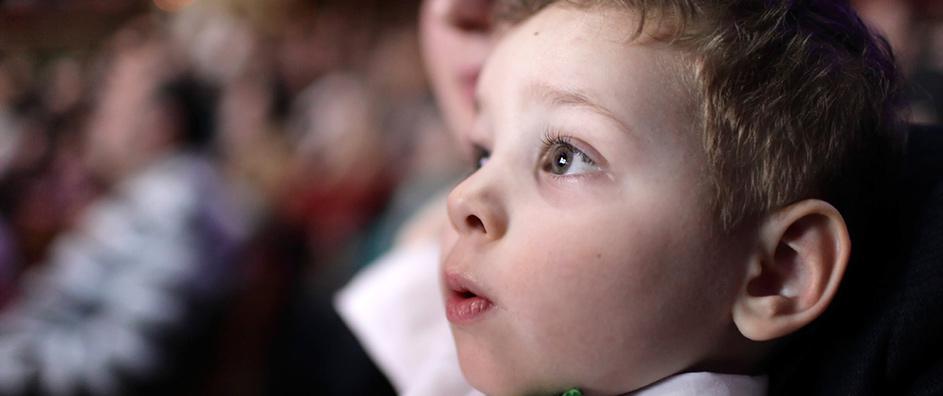The arts have long served as a vessel for the transmission of profound truths and insights. Among these artistic forms, drama emerges as a particularly impactful medium capable of weaving together narratives that resonate deeply with the human condition. In the context of Bahá’í teachings, the powerful spiritual influence of drama is significant, promising not only a shift in perspective but also the cultivation of curiosity, self-reflection, and spiritual enrichment.
At its essence, drama is a mirror reflecting the complexities of life, drawing audiences into the depths of human experience. It has the capability to portray the struggles, triumphs, and myriad emotions that comprise the human journey. Within the Bahá’í framework, this artistic expression assumes an added dimension, viewed as a potential catalyst for spiritual awakening. The capacity of drama to convey moral lessons and elevate spiritual comprehension is noteworthy. Its dynamic nature invites viewers to engage both intellectually and emotionally, fostering a fertile ground for personal transformation.
One of the fundamental principles of Bahá’í belief is the pursuit of truth. Drama, by virtue of its inherent capacity to question, critique, and challenge perceptions, aligns closely with this pursuit. The art form encourages audiences to confront uncomfortable realities and consider perspectives that may differ from their own. This is pivotal in the Bahá’í context, where the emphasis on unity and the elimination of prejudice necessitates an openness to varied viewpoints. A well-crafted dramatic narrative can provoke profound questions that resonate with an individual’s spiritual quest. It cultivates an atmosphere where curiosity can flourish; leading to inquiries about the purpose of existence, the nature of humanity, and the interconnectedness of all people.
The narrative structure inherent in drama serves as a powerful didactic tool. Through the depiction of diverse characters and their struggles, drama elucidates virtues such as compassion, justice, and sacrifice. These attributes mirror the ethical teachings found in Bahá’í writings, creating a vivid tapestry that promotes moral reflection. The characters’ journeys provide palpable examples of how these virtues can be practiced within one’s life. Consequently, audiences are not merely spectators; they become participants in an unfolding dialogue that encourages introspection and moral consideration.
Moreover, drama’s inherent thematic versatility allows it to tackle intricate subjects such as love, betrayal, loyalty, and redemption. Such themes resonate with universal truths that span cultures and traditions, making drama an effective bridge for fostering understanding among diverse groups. In the Bahá’í faith, the importance of unity and collective identity is paramount. By showcasing the shared struggles of humanity, drama cultivates a sense of belonging, reinforcing the belief that we are all interconnected in our experiences.
The experiential nature of drama also sets it apart from other forms of artistic expression. Live performances create an environment in which the audience is not merely observing; rather, they are actively engaged in the emotional and spiritual dynamics of the story. This interactivity heightens the impact of the narrative, allowing audiences to experience catharsis alongside the characters. Such moments can catalyze deep emotional and spiritual insights, prompting individuals to explore their own beliefs and actions in light of the dramas presented.
Furthermore, the Bahá’í teachings emphasize the significance of art as a means of conveying spiritual truth. Abdu’l-Bahá, the son of the Founder of the Bahá’í Faith, advocated for the integration of artistic expression into everyday life. He believed that art, including drama, has the potential to elevate the soul and generate a deeper understanding of the divine. In this light, drama transcends mere entertainment; it becomes a profound spiritual practice, a way to communicate and explore sacred truths and moral responsibilities.
In the contemporary context, where societal challenges such as division, injustice, and inequality are rampant, the role of drama becomes increasingly vital. It serves as a potent medium through which to address pressing issues while calling upon audiences to reflect on their roles in fostering societal harmony. The Bahá’í principles of justice, equality, and the oneness of humanity can be further articulated and examined through dramatic representation. Playwrights and performers are thereby tasked with the responsibility of crafting narratives that challenge the status quo, inspiring change and encouraging dialogue around crucial social topics.
Moreover, the advent of new mediums and technologies has expanded the reach of dramatic expression. Streaming platforms, for instance, have democratized access to a plethora of theatrical works, enabling diverse voices to contribute to the narrative landscape. This accessibility aligns well with the Bahá’í commitment to inclusivity, providing a platform for underrepresented groups to share their experiences and perspectives. As a result, the transformative power of drama continues to evolve, adapting to the ever-changing societal fabric while remaining a steadfast channel for spiritual influence.
In conclusion, the study of drama within the context of Bahá’í teachings unveils a vast terrain rich with potential for spiritual discovery. The powerful influence of drama lies in its ability to shift perspectives, provoke curiosity, and inspire action. By illuminating the human condition, it challenges audiences to reflect on their values and beliefs while fostering a deeper understanding of the myriad experiences that define life. As such, drama emerges as an essential tool for not only artistic expression but also spiritual growth and societal progress, inviting all to partake in its transformative journey.
